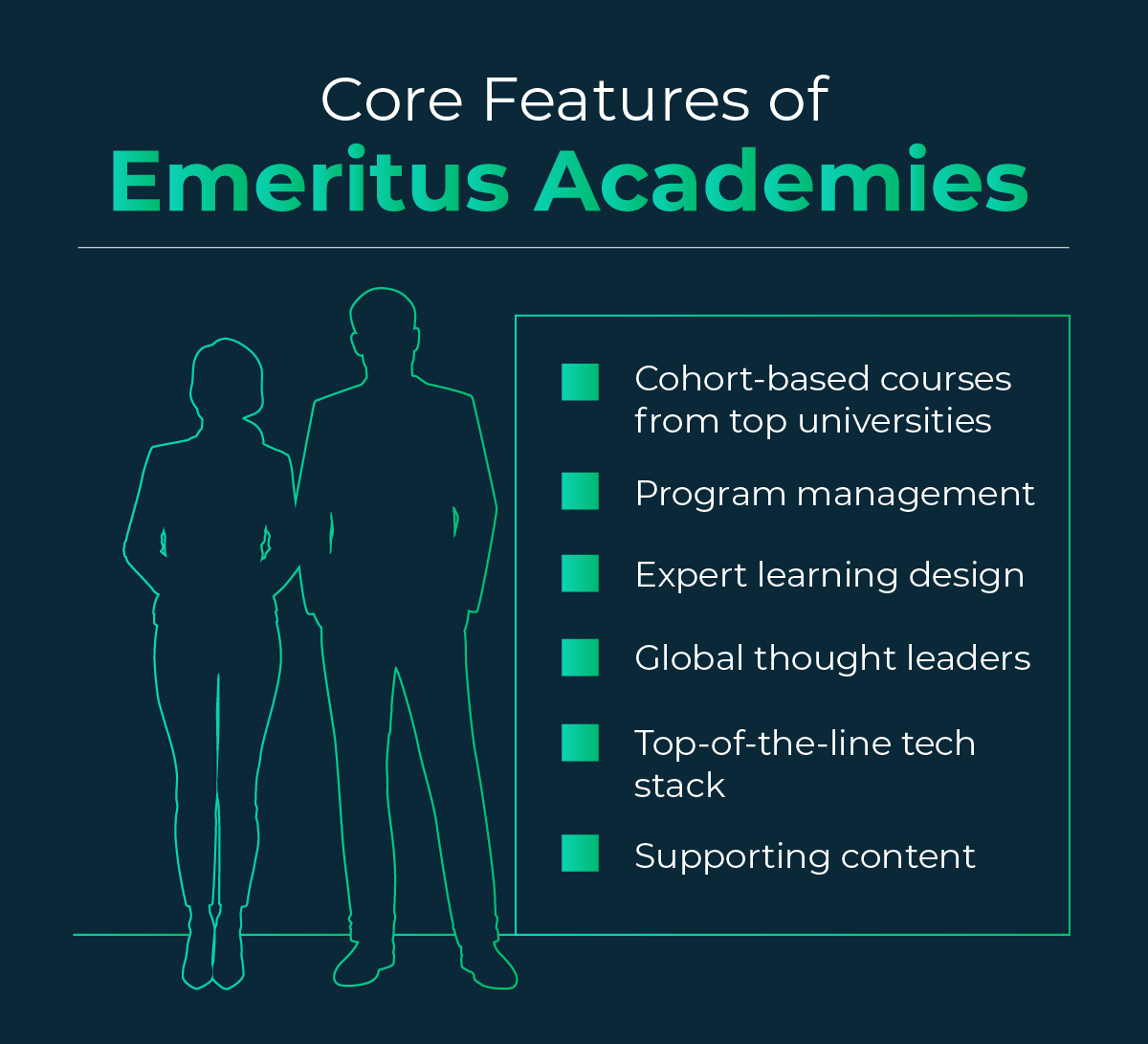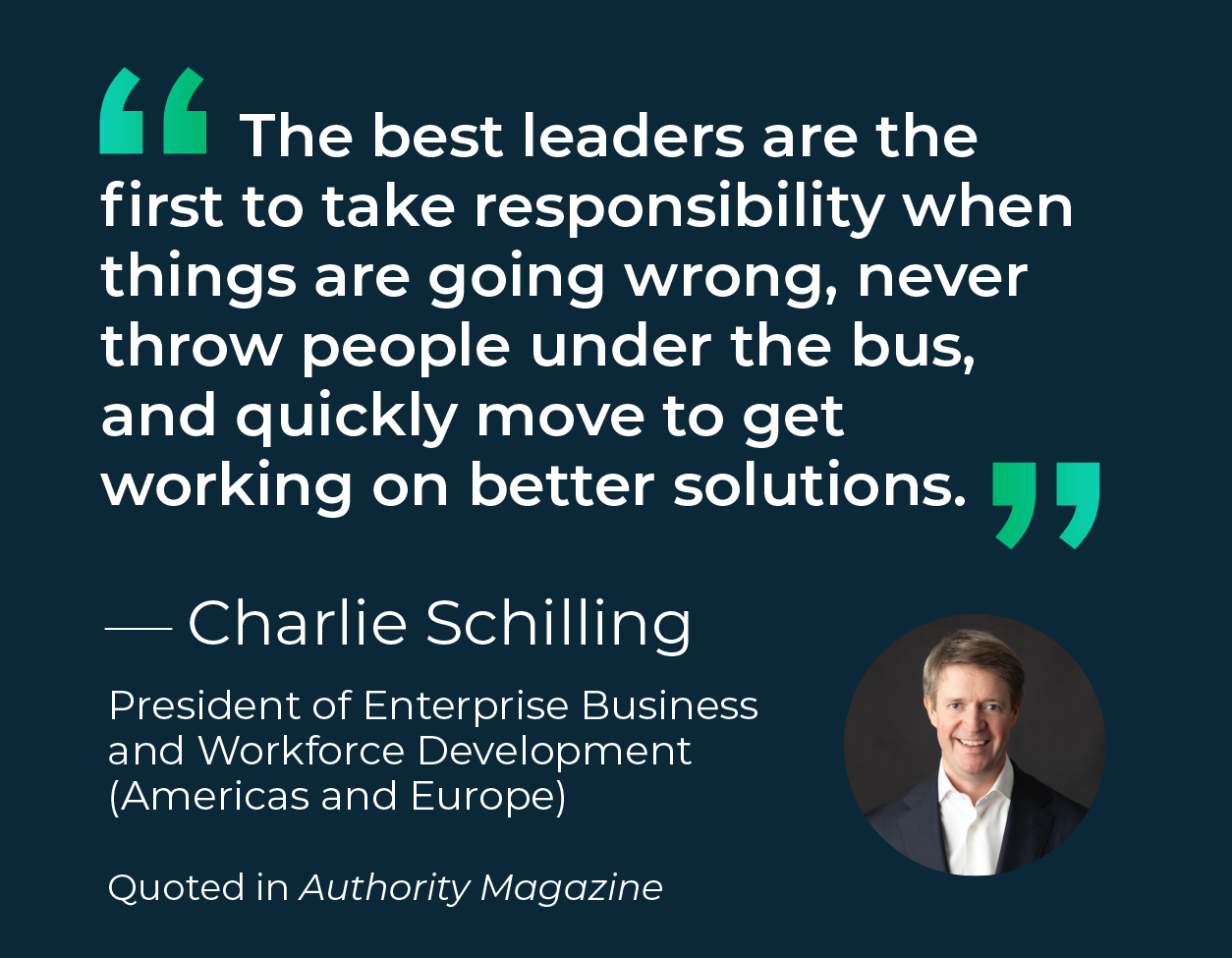Building the Right Employee Skills to Close the Leadership Gap

The last few years have demanded a lot from leaders in a period of dramatic change. The COVID-19 pandemic, the transition to hybrid and remote work, and changing employee expectations have all offered immense challenges. Now, organizations must reassess what leadership skills their workforces need to move forward.
Today’s leaders need to leverage new tools to engage their workforces, adapt quickly to changing circumstances, and make data-driven decisions in challenging business environments. But many lack the training and skills to do so, and few organizations believe their leadership development programs are highly effective.
The result? A widening leadership skills gap that threatens the future of organizations of all sizes.
Causes and Consequences of the Widening Leadership Gap
Effective leaders are core to organizational success, yet leadership development remains a significant challenge for most companies. In fact, Gallup has found that poor management costs the global economy $7 trillion each year.
And in our complex and fast-changing business environment, leadership is more critical than ever before. McKinsey & Company projects that demand for skilled leaders will rise even as automation and artificial intelligence replace other traditional job skills. Yet only 11% of executives believe that their current leadership development efforts are working.
Often, leaders rise into their positions on the strength of their talents as individual contributors but do not receive specific or adequate training on the unique skills required to manage others. That lack of education and resources is particularly damaging because research shows that managers are the direct cause of 70% of variance in team engagement.
Even leaders with natural talent and significant experience may lack the skills needed to lead in the context of changing workplace norms. Hybrid and remote workforces demand a different style of management than in-person teams. And cultural trends like the Great Resignation have shown that employees are looking to engage with their careers in new ways.
The research is clear—most leaders are unprepared for these challenges. Companies must act now to equip their leaders with both the technical understanding to make strategic decisions and the soft skills to keep employees engaged and performing at their best.
Building the Right Skills to Close the Leadership Gap
As business needs and employee expectations have changed, so have the leadership skills most in demand. Notably, soft skills are more important than ever in this new reality as managers and executives are asked to take on nuanced and complex challenges. Companies should prioritize the following areas as they prepare development plans to close the leadership gap.
Strategic Leadership
To succeed, organizational transformations require leaders with a dual skill set: creating effective strategies and also building support for those strategies among employees and stakeholders.
They need the broad vision to understand their organization’s strengths and weaknesses and how they fit into the competitive landscape. With that perspective, leaders can identify areas for innovation and expansion and help the company focus on the key things that matter, instead of chasing trends.
In today’s environment, leaders also need to be adept at data-driven decision-making. While they need not be data analytics experts, all leaders should have basic data literacy skills so they can identify trends and understand key indicators. They also need to be able to think about and mitigate risk without being overly conservative.
Agile Leadership
Change is inevitable—but without effective leadership, it can be a major sticking point for organizations. According to McKinsey & Company, 70% of strategic transformations fail, and one common contributing factor is leaders’ failure to build conviction and buy-in for the change within the organization.
To lead through change, executives must lean on their communication skills and emotional intelligence to build enthusiasm and address concerns while ensuring that teams are appropriately staffed and skilled. They also need to remain flexible and agile to change course as needed. During the COVID-19 pandemic, organizations that could pivot quickly and rethink how they worked thrived, while those deeply entrenched in rigid ways of doing business faltered.
While the depths of the pandemic may be behind us, economic uncertainty, complex geopolitical challenges, and rapidly changing technology continue to demand a high level of adaptation from organizations in all industries. Leaders must stay alert to upcoming challenges and trends and be ready to change course quickly as needed, even if doing so is difficult or uncomfortable.
People Leadership
One of the greatest changes driving demand for specific skills is the shift to hybrid and remote work. Managing a team that you may never meet in person demands a different approach than leading employees who are all onsite together.
In this new context, communication skills are essential, especially as the boundaries between work and life continue to blur. Leaders must communicate expectations clearly with their teams to ensure everyone has the resources (and insights) they need and is pulling their weight. They must also be careful to give remote team members the same support, feedback, and opportunities they would receive in person.
In addition to changing organizational priorities, leaders need to stay attuned to employees’ needs, since leadership is the primary driver of employee engagement. Today, more and more employees are looking to their jobs for a sense of purpose and belonging. However, only 15% of frontline managers and employees feel connected to their company’s values. Leaders who can use empathy and emotional intelligence to connect with their employees’ intrinsic motivations and help them find meaning in their work will drive increased engagement and performance.
In addition to connecting with a sense of purpose, today’s employees care deeply about bringing their whole selves to work. They want to be part of a workplace culture that celebrates individuals and recognizes their diverse backgrounds, perspectives, and needs inside and outside of the workplace.
To build these cultures, leaders need specific training to develop cultural competencies and overcome implicit biases. There’s work to be done in every organization in this area—Korn Ferry reports that only 5% of leaders are truly inclusive. All managers need the skills to create an equitable environment where every member of the team is valued and able to contribute to their full potential.
How Emeritus Academies Can Help Drive Leadership Transformation
For most organizations, upskilling leaders with new skills is both critical and time-sensitive. But most existing internal development programs aren’t tailored to today’s demands. At the same time, off-the-shelf learning solutions lack the specificity and support organizations need to develop leadership skills at a high level.
Emeritus’s Leadership Academy fills this gap, offering a tailored menu of courses from leading universities designed to equip your leaders and managers with the skills to drive impact amidst changing market demands.

The Leadership Academy utilizes a cohort-based learning model, which pairs support and structure with the flexibility high-level professionals need. With learning pathways and courses for leaders at all levels, participants will learn how to mitigate risks, build agility, and leverage data.
Emeritus Enterprise offers extensive opportunities for customization to align with your organization’s specific needs, as well as customized assessment and measurement tools and a company-branded portal.
Interested in learning more about Emeritus’s Leadership Academy? Get in touch.


